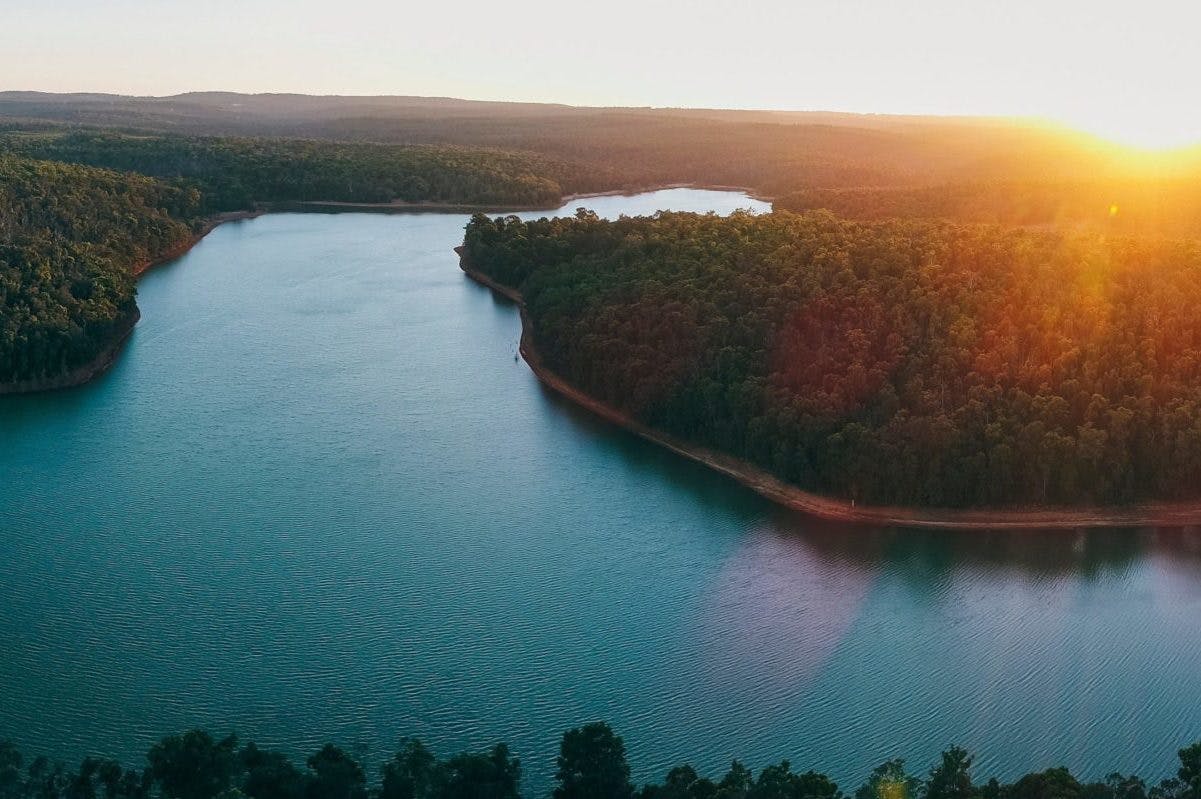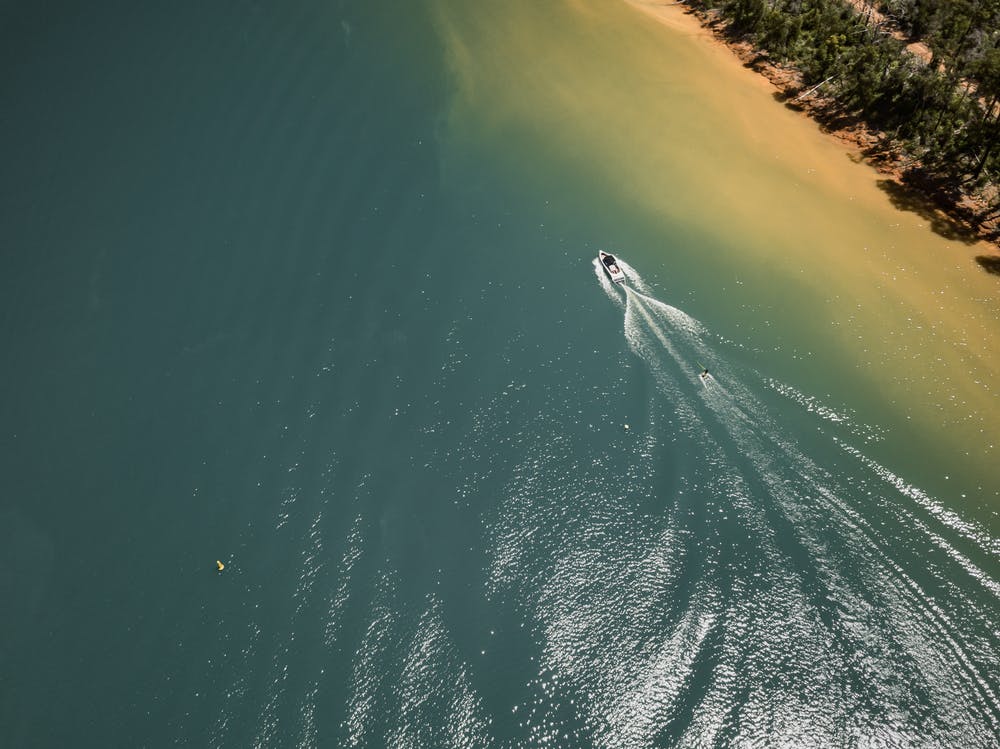Lake Navarino: Everything you need to know

Less than an hour from Mandurah, you’ll find Lake Navarino – also known as Waroona Dam.
The man-made lake is a playground for water lovers, 4WDers, bushwalkers, and anyone looking to escape the city for a bit of unplugged adventure.
What is it?
The dam first opened in 1966, with the neighbouring holiday park originally built as a construction camp. Occupying 145 hectares, its primary use is irrigation – but it’s been utilised for recreation for decades. Located on the Drakes Brook, a tributary of the Harvey River, the lake is bounded by jarrah forest, with the surrounding area coming alive with wildflowers during spring.
Where is it?
Located 10kms east of Waroona, Lake Navarino is approximately an hour and a half’s drive out of Perth and is on Gnaala Karla Boodja.
What to do:
As well as 4WDing, the dam is a hotspot for any kind of water-based fun – whether you’re skiing, wakeboarding, boating or just having a splash. On this note – make sure to bring your fishing rod. The lake is stocked with rainbow and brown trout, as well as redfin perch and marron (licence required).
Subscribe to our free newsletter!
Bring your pooch! Well-behaved pups are welcome at Navarino – just make sure you pick up after them, and are mindful of everyone around you.
Be considerate to your fellow lake users. A popular spot for families, if you’re driving near the dam, or using water craft like boats or jet skis – remember to be aware of your surroundings, of water safety, and everyone’s enjoyment of the area. Plus, if you’re staying overnight, make sure to keep noise down between 11pm and 7am.

What not to do:
Camp by the lake: unfortunately due to some less than desirable behaviour from some campers in the past (read: antisocial hoons), lakeside camping has now been prohibited. You are still able to stay at the nearby holiday park, where they have both powered and unpowered camping sites, cabins and glamping available.
As with all visits to our natural spaces, adhere to the Leave No Trace Principles: meaning don’t leave any rubbish out there, don’t pick wildflowers and try your best to look after the surrounding area. Make sure you also adhere to any fire restrictions or bans that might be in place.
Header Image Credit: Tourism WA